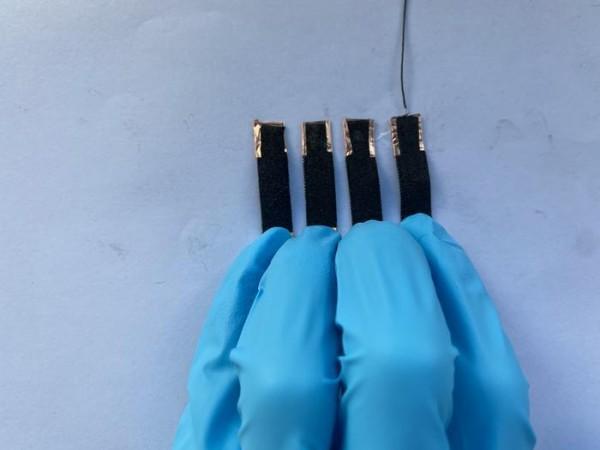
Imagine clothing that not only keeps you warm during winter walks but also harnesses solar energy to do so, or a shirt that monitors your heart rate and temperature seamlessly. A team of Canadian researchers on Wednesday announced a smart fabric with these remarkable capabilities.
The innovative fabric, created by a team at Waterloo University in Canada can convert body heat and solar energy into electricity, potentially eliminating the need for external power sources. This opens up possibilities for integrating various sensors to monitor temperature, stress, and more within the fabric itself.
The material can detect temperature fluctuations and incorporate sensors to monitor pressure, chemical composition, and other parameters. One exciting application is the development of smart face masks that can track breath temperature and rate while detecting chemicals that may indicate viruses, lung cancer, or other health conditions.
"We have created a fabric with multifunctional sensing capabilities and the potential for self-powering, bringing us closer to practical smart fabric applications," said Yuning Li, a professor in the Department of Chemical Engineering at the University

Unlike current wearable devices, which often rely on external power sources or frequent recharging, this breakthrough offers a fabric that is more stable, durable, and cost-effective.
The research, conducted in collaboration with Jiangnan University in China, demonstrates the potential of combining advanced materials like MXene and conductive polymers with cutting-edge textile technology to advance wearable smart fabrics.
"This new smart fabric is a significant step forward in making continuous data collection and monitoring practical, supporting the rapid evolution of AI technology in health monitoring, environmental tracking, and more," said Li.
The next phase of research will focus on enhancing the fabric's performance and integrating it with electronic components. Collaboration with electrical and computer engineers will aim to develop a smartphone app to track and transmit data from the fabric, enabling real-time, non-invasive health monitoring and everyday use.
(With inputs from IANS)

















![Limited edition Phone (3a) launched in India; what's special about it [read now]](https://data1.ibtimes.co.in/en/full/825642/limited-edition-phone-3a-launched-india-whats-special-about-it-read-now.png?w=220&h=135)